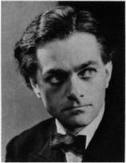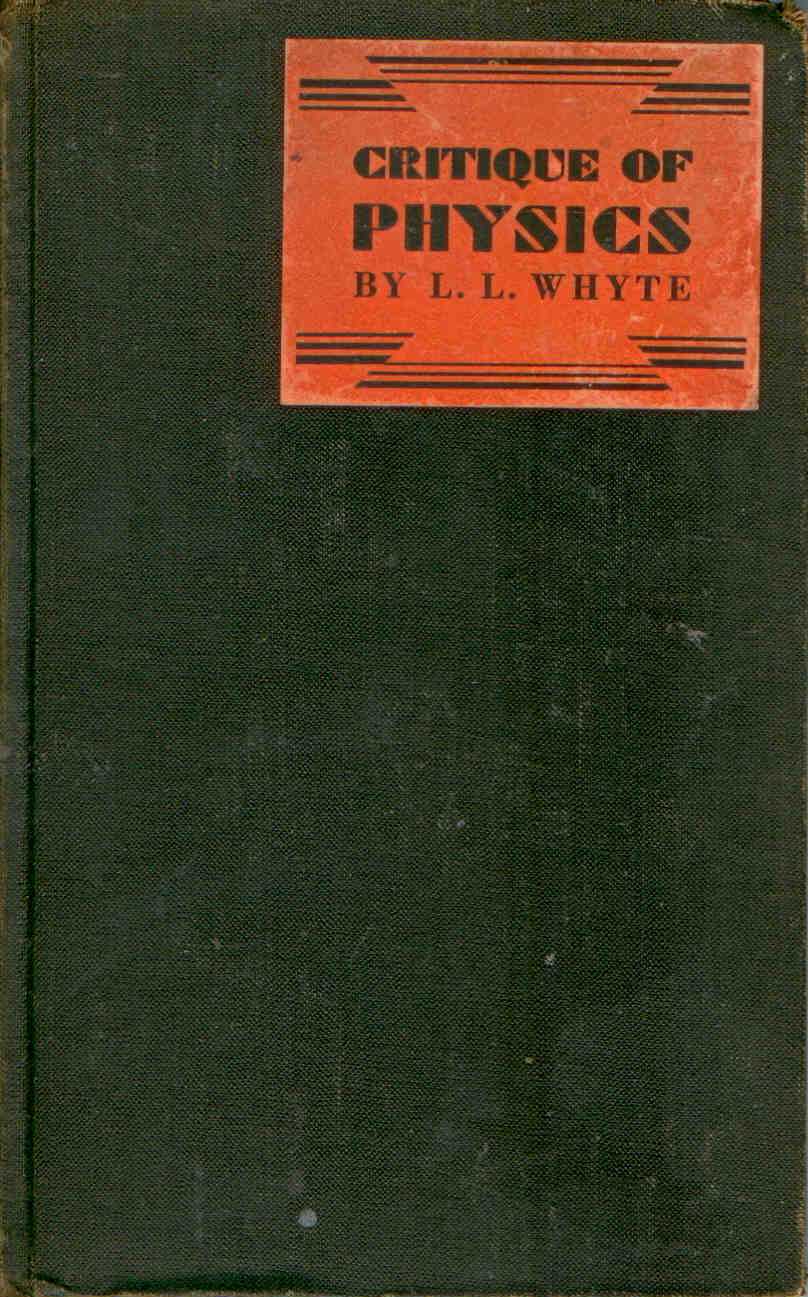-
 Industrial Engineer, Financier(Unification)
Industrial Engineer, Financier(Unification)Lancelot Law Whyte (L. L. Whyte) was a Scottish financier and industrial engineer. He claimed to have worked with Albert Einstein on the unified field theory. He further claimed that this work was based on the theory of the 18th century natural philosopher Roger Boscovich. Whyte proposed something he called \"the unitary principle\" to unify physics theories. Experimental work on this theory was carried out by Leo Baranski. - Wikipedia
Lancelot Law Whyte was not appreciated in Great Britain but was celebrated in the US. He fought in the First World War, and was a brilliant mathematical physicist employed in industry, investment banker and scientific consultant on financing new inventions, chairman and managing director of Power Jets, Ltd. which developed the Whittle jet engine, as well as serving as Director of Statistical Enquiries in the Ministry of Supplies. But his main interest was as a philosopher of science and as a postulator of human inquiry and development.
Whyte appeared to know all of the authors on this site who were within his generation with the exception of Silvan Tomkins. He gave a keynote memorial address for the Institute of General Semantics in honor of Korzybski, and corresponded with Bois. Bohm knew and admired him and carried on the work of expressing the unified theory in physics after Whyte died. He knew Teilhard de Chardin and by one of those strange co-incidences his cousin had worked on archeological digs with Teilhard in China. Of all our writers embracing holism perhaps Whyte expressed it most clearly.
When we finally found the surviving family, they told us that Lance was not appreciated in Great Britain but was celebrated in the US. He fought in the First World War, and was a brilliant mathematical physicist employed in industry, investment banker and scientific consultant on financing new inventions, chairman and managing director of Power Jets, Ltd. which developed the Whittle jet engine, as well as serving as Director of Statistical Enquiries in the Ministry of Supplies. But his main interest was as a philosopher of science and as a postulator of human inquiry and development. He studied at Cambridge, had fellowships from the Rockefeller Foundation and lectured in America\'s leading universities.
The Next Development in Man is a title which contained one of the main elements. The little word \'in\' implies the \'within\' that Teilhard wrote of, and that Whyte later called \'the unconscious tradition\'. The \'in\' points to a development over which we have no control, but with which we may participate. By so doing, we become an influential element of the universal formative or morphic tendency. You may be able to see this in your own life, and in the limitations of the concept of control.
For a writer long out of print, the effect he had on many of the people who read him is remarkable. His emphasis on process, unification and perhaps above all on what he saw as a \'facilitative\' mechanism which ensured the development and expansion of certain social structures and systems, provided a methodology to readers and writers who followed, and which gave them a better understanding of an increasingly complex world.
In a preface to the Mentor edition of his book The Next Development in Man published in 1949, he remarks, \"The response of readers in the United States \"- - - is for me a remarkable symptom of the readiness of the New World for a fresh orientation towards fundamental problems,\" and this seems to support the view of his family 50 years later that he was not appreciated in Great Britain, whose literary critics would not have taken too kindly to an engineer and physicist daring to write philosophy.
In the same preface he says, \"I wish to take this opportunity to send a special greeting to all youthful readers, since it is they alone who can make real whatever value there may be in these ideas.\" - Philosphere
Books:
- Archimedes or the Future of Physics, 1928.
- Critique of Physics, K. Paul Trench, 1931, 196p.
- The Unitary Principle in Physics and Biology, London, 1949.
- Essay on Atomism: From Democritus to 1960, Nelson 1961.
- The Atomic Problem: A Challenge to Physicists and Mathematicians, Allen & Unwin 1961.
- Focus and Diversions, Cresset Press, London 1963.
- Everyman Looks Forward
- Internal Factors in Evolution
- Aspects of Form
- Accent on Form: An Anticipation of the Science of Tomorrow
- The Unconscious Before Freud
- The Next Development in Man
- The Universe of Experience
Critique of Physics (Buy Now)
Authors


